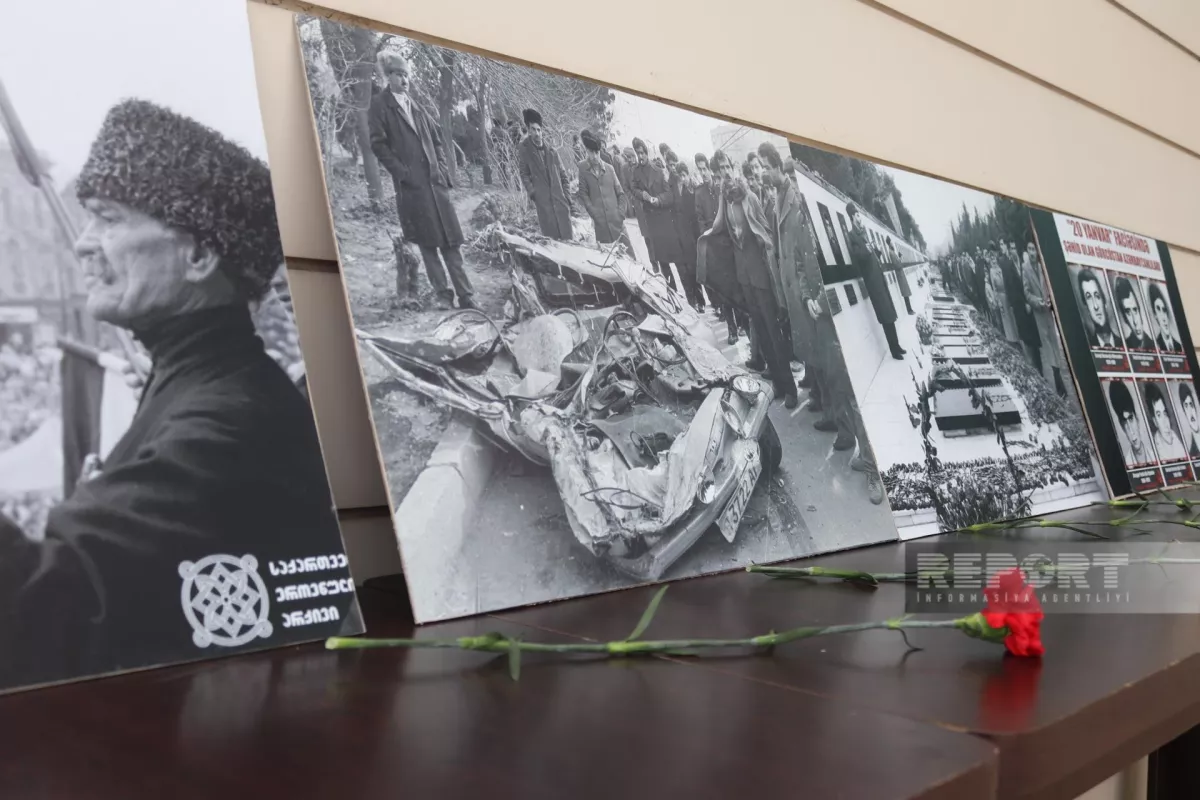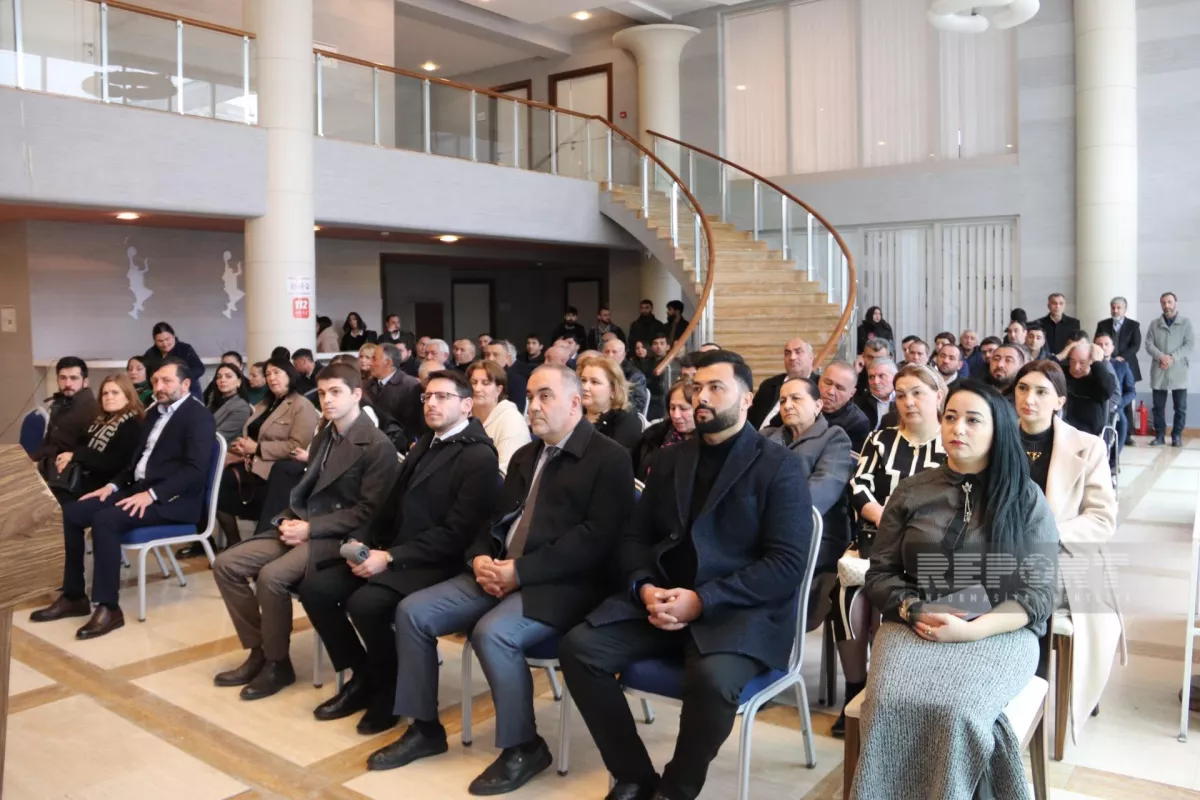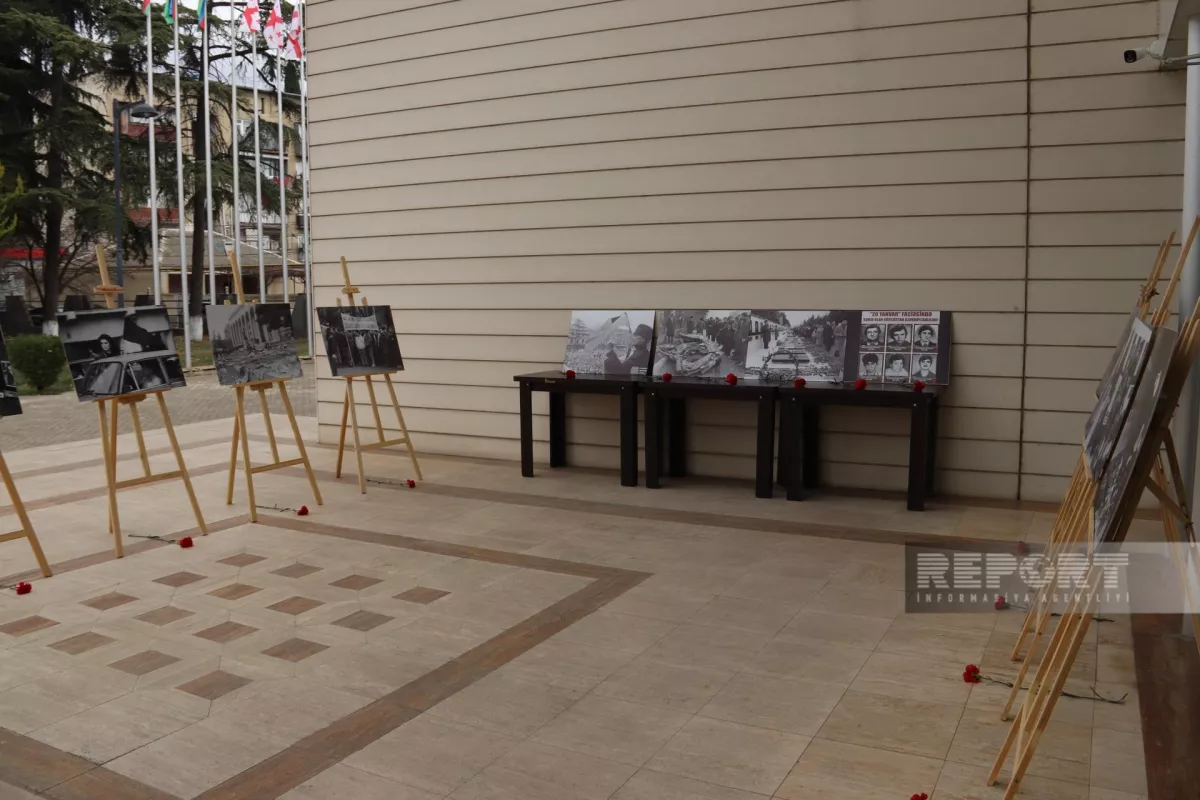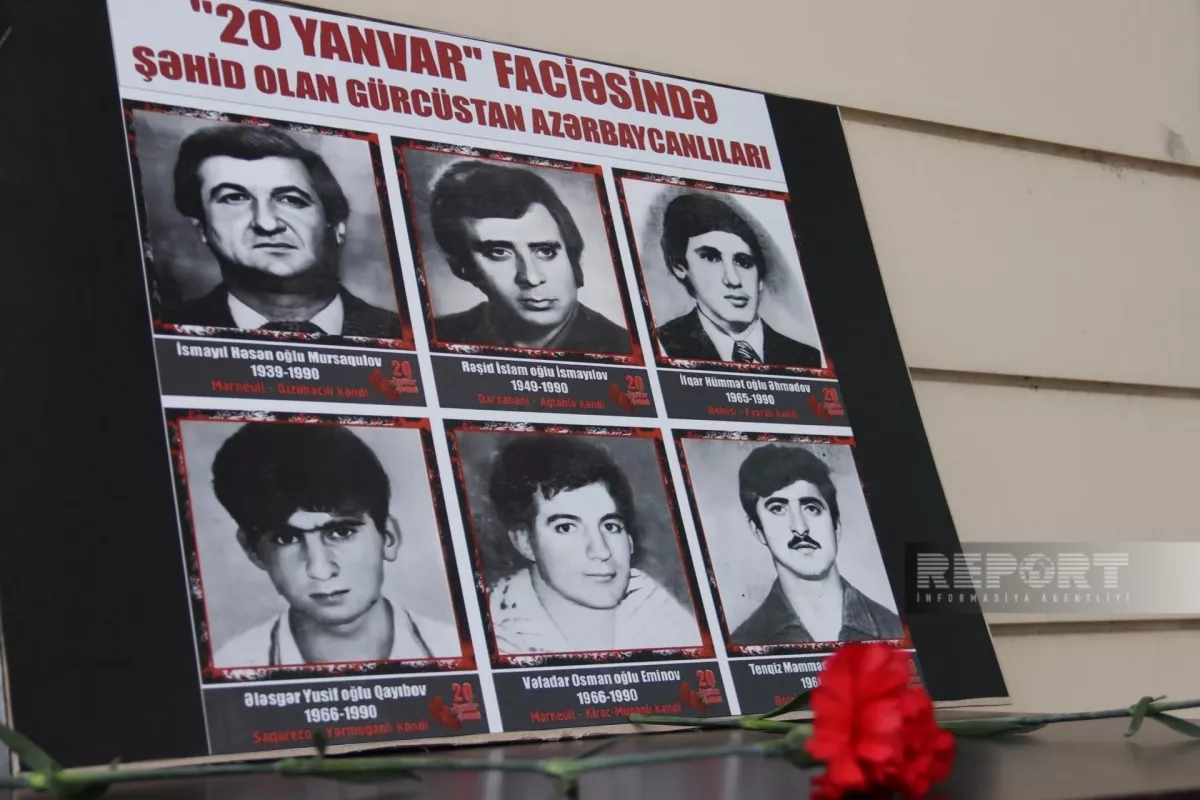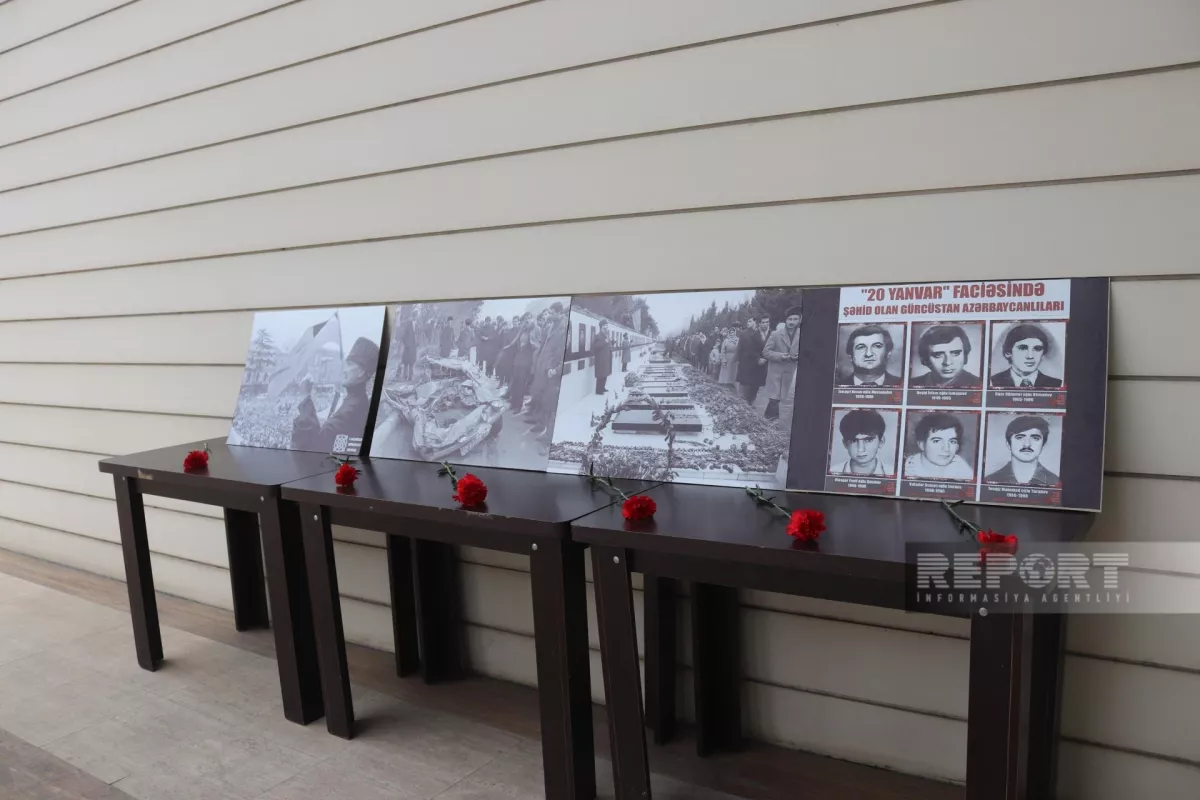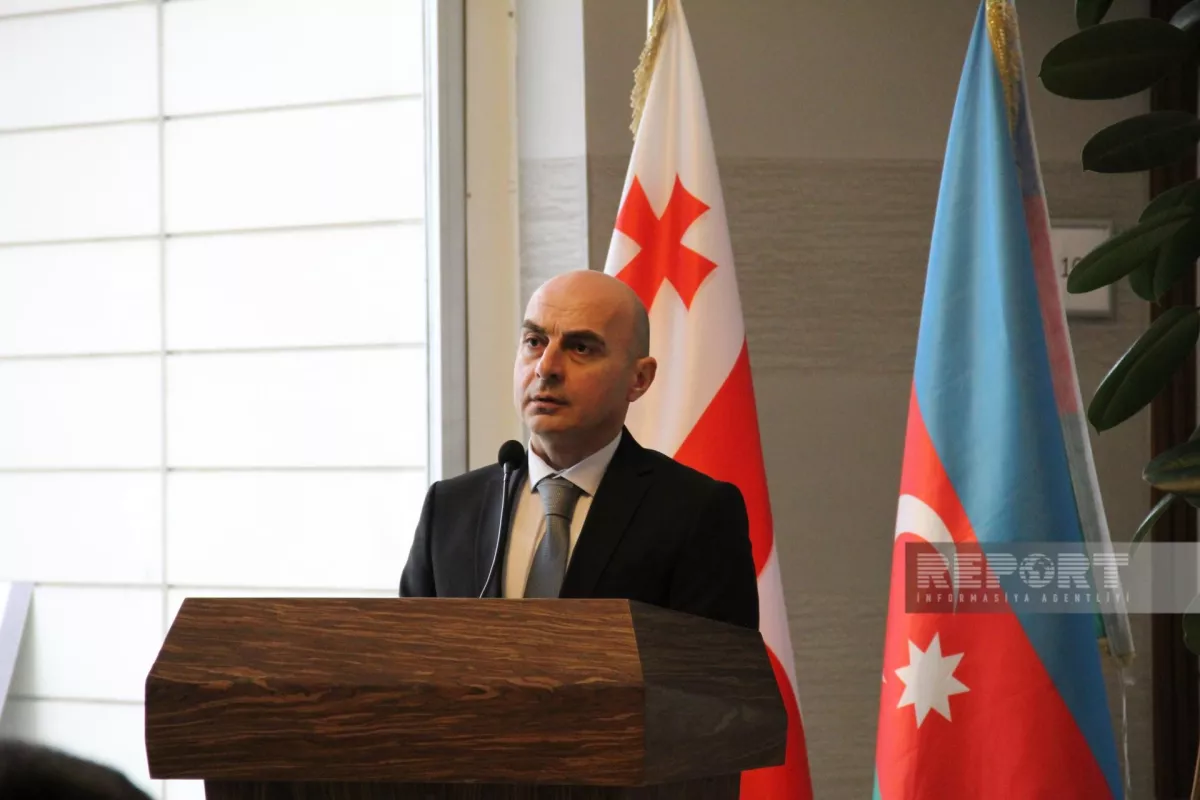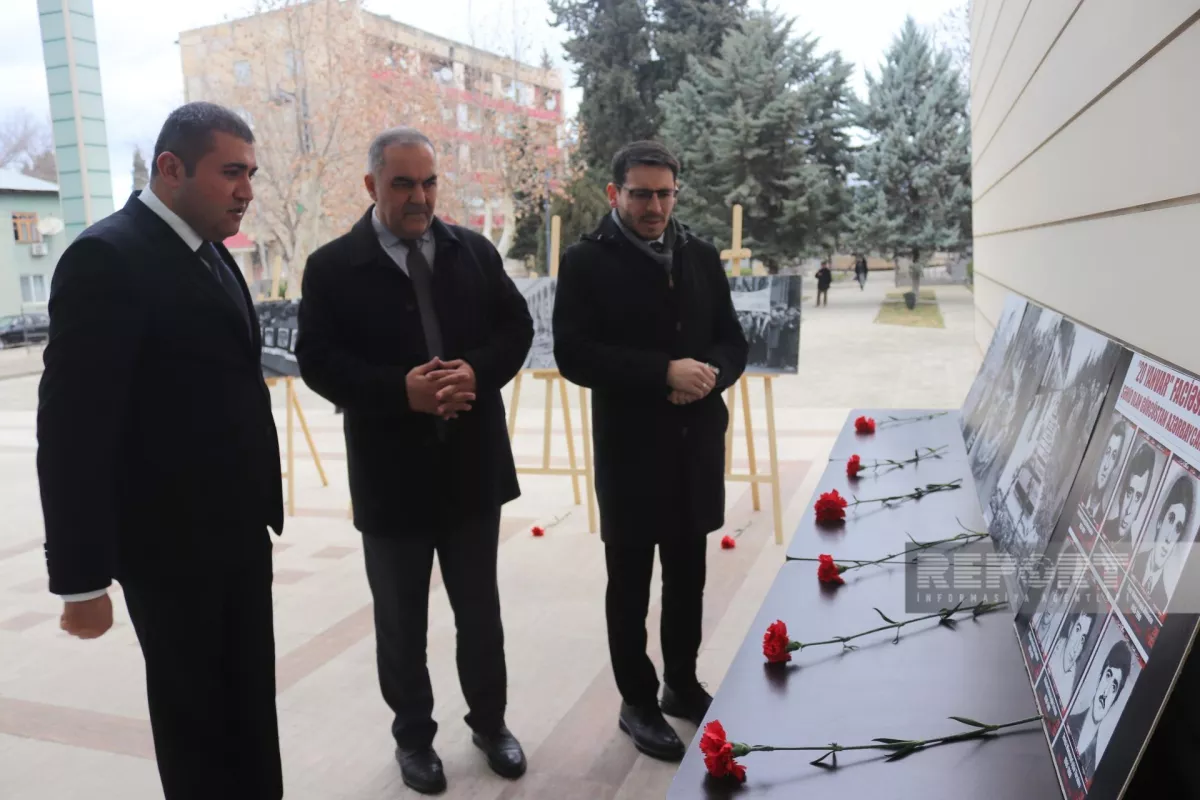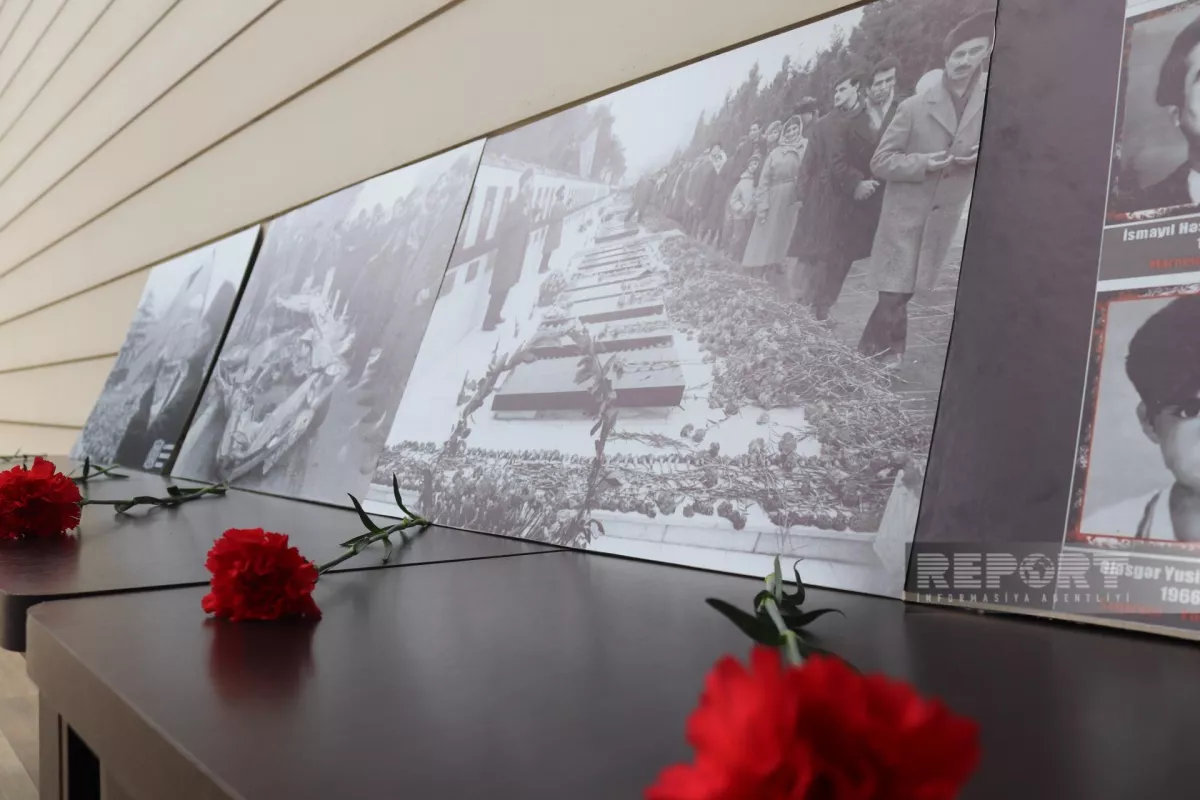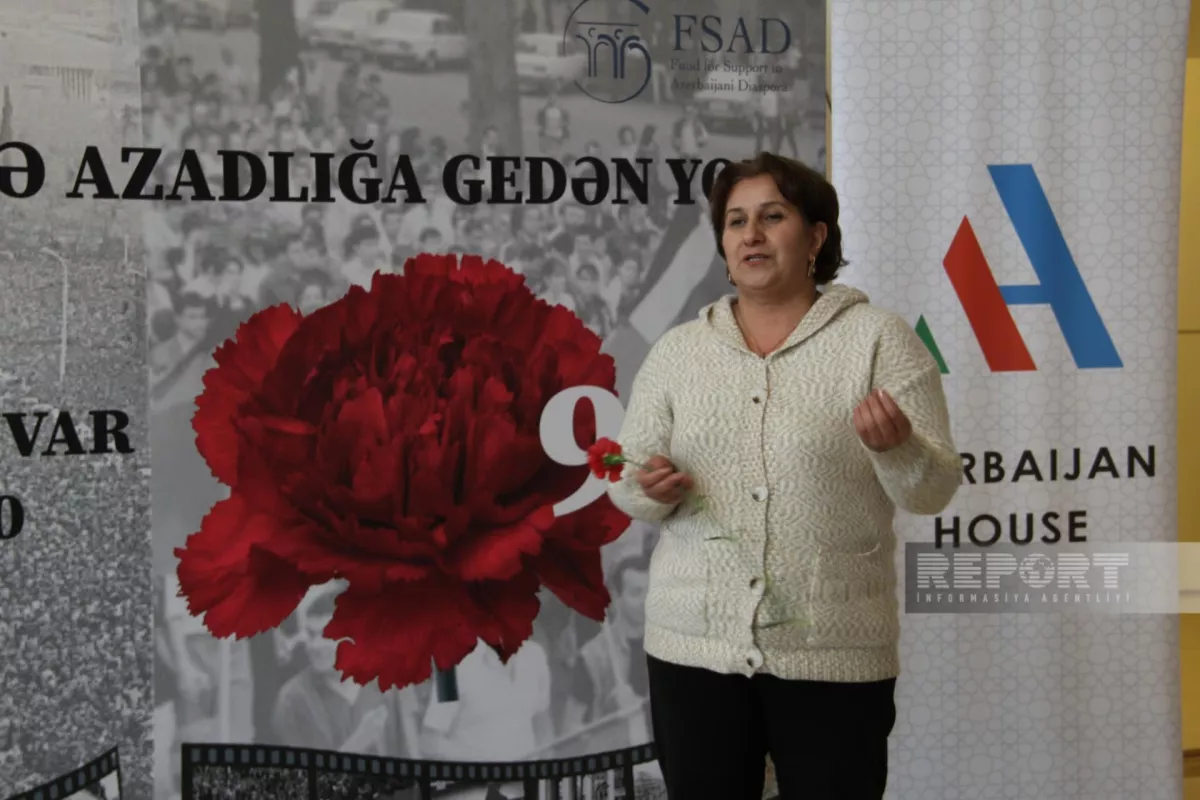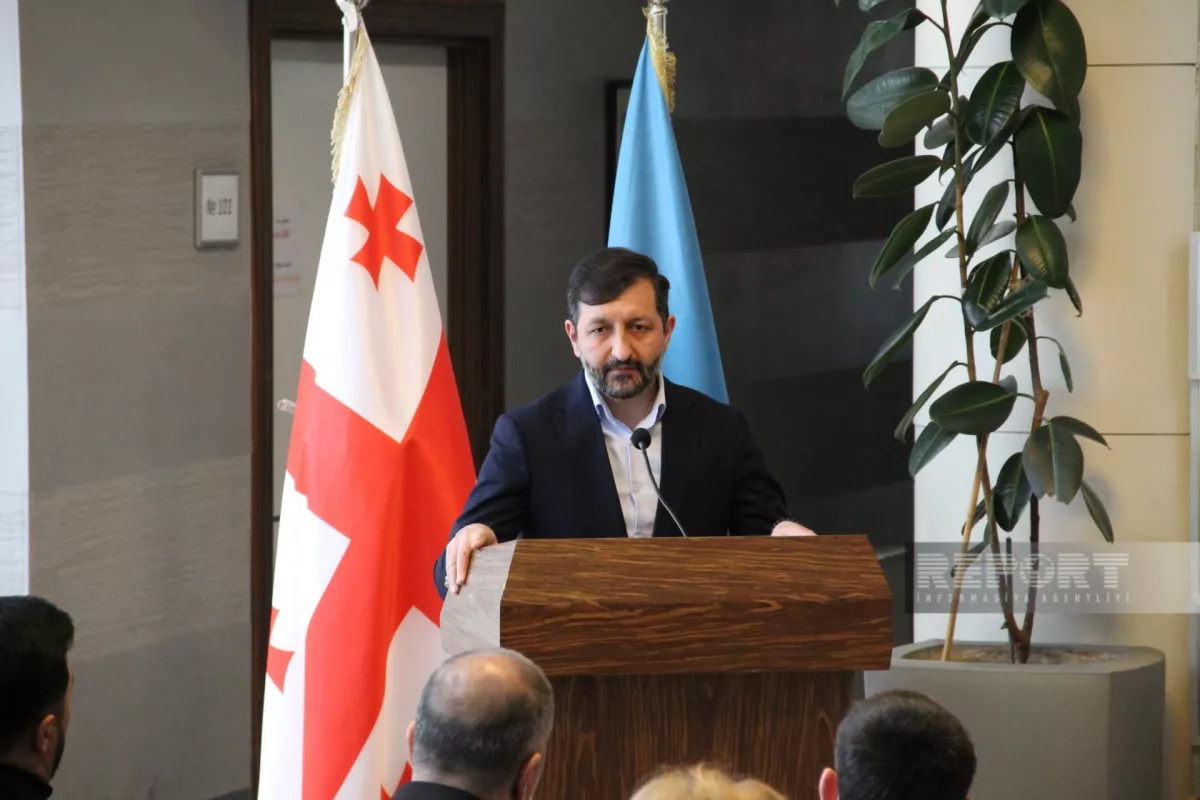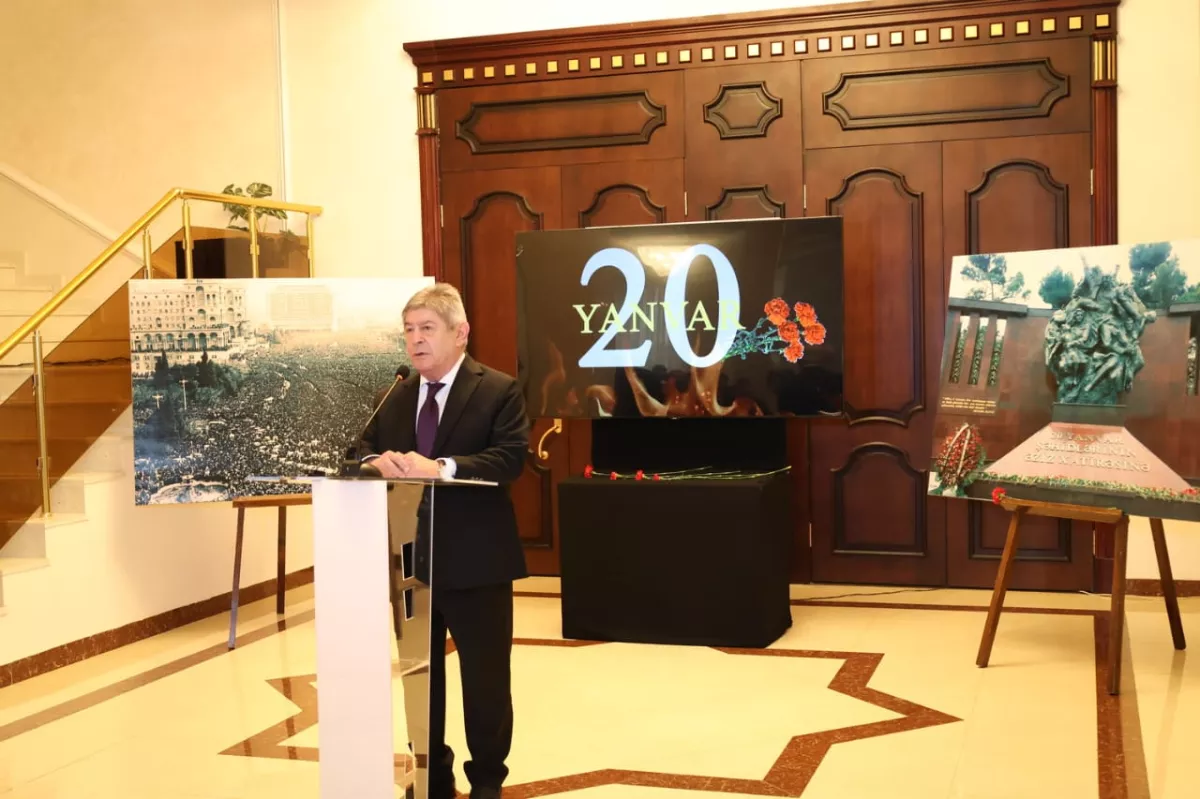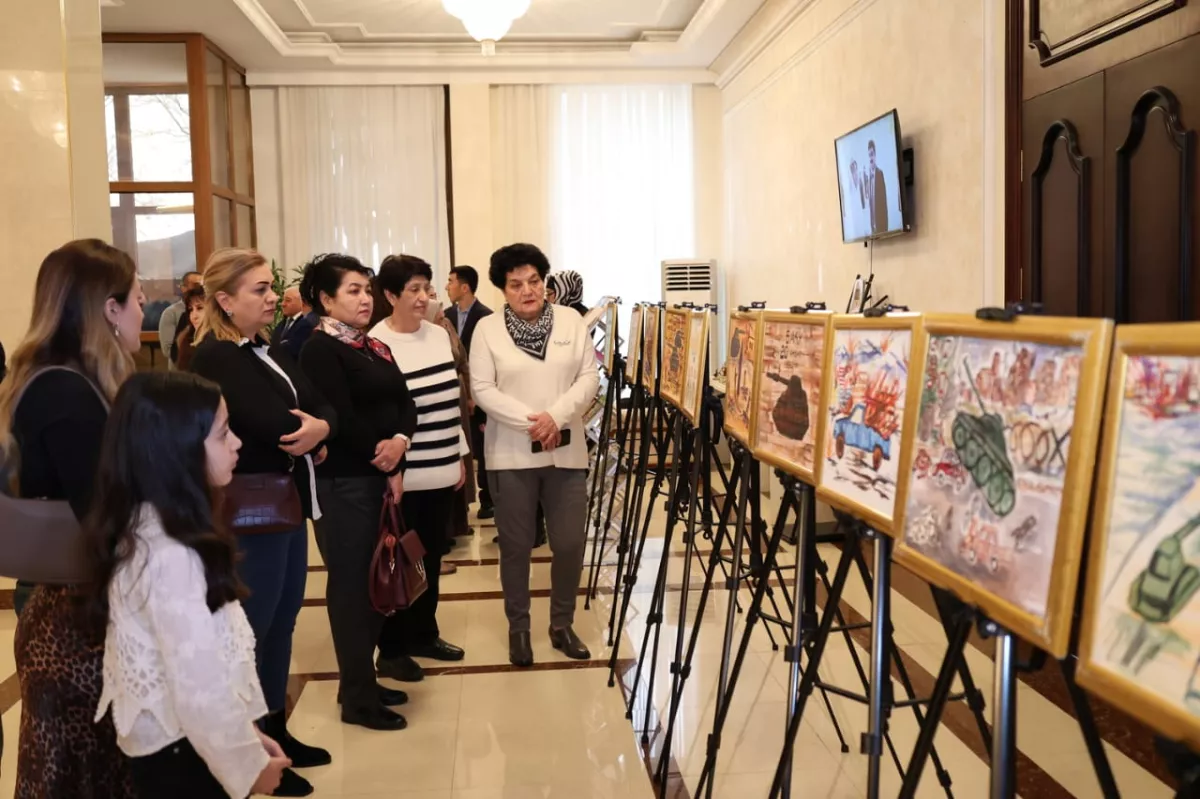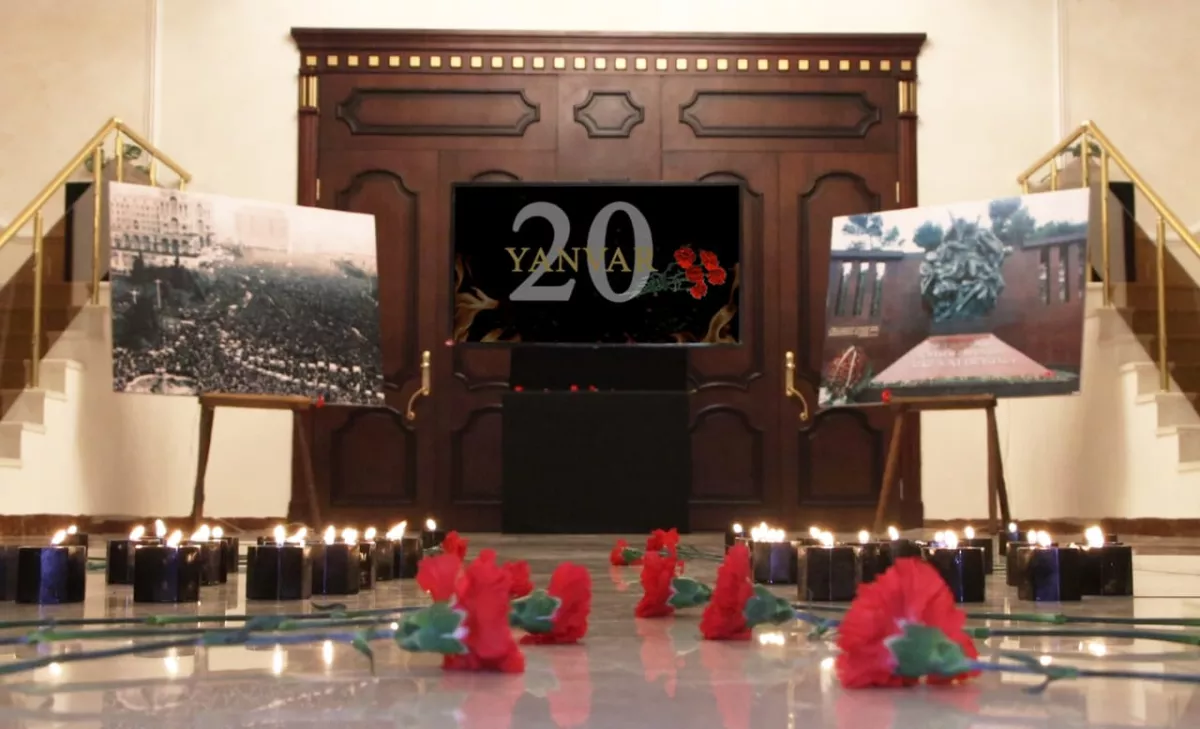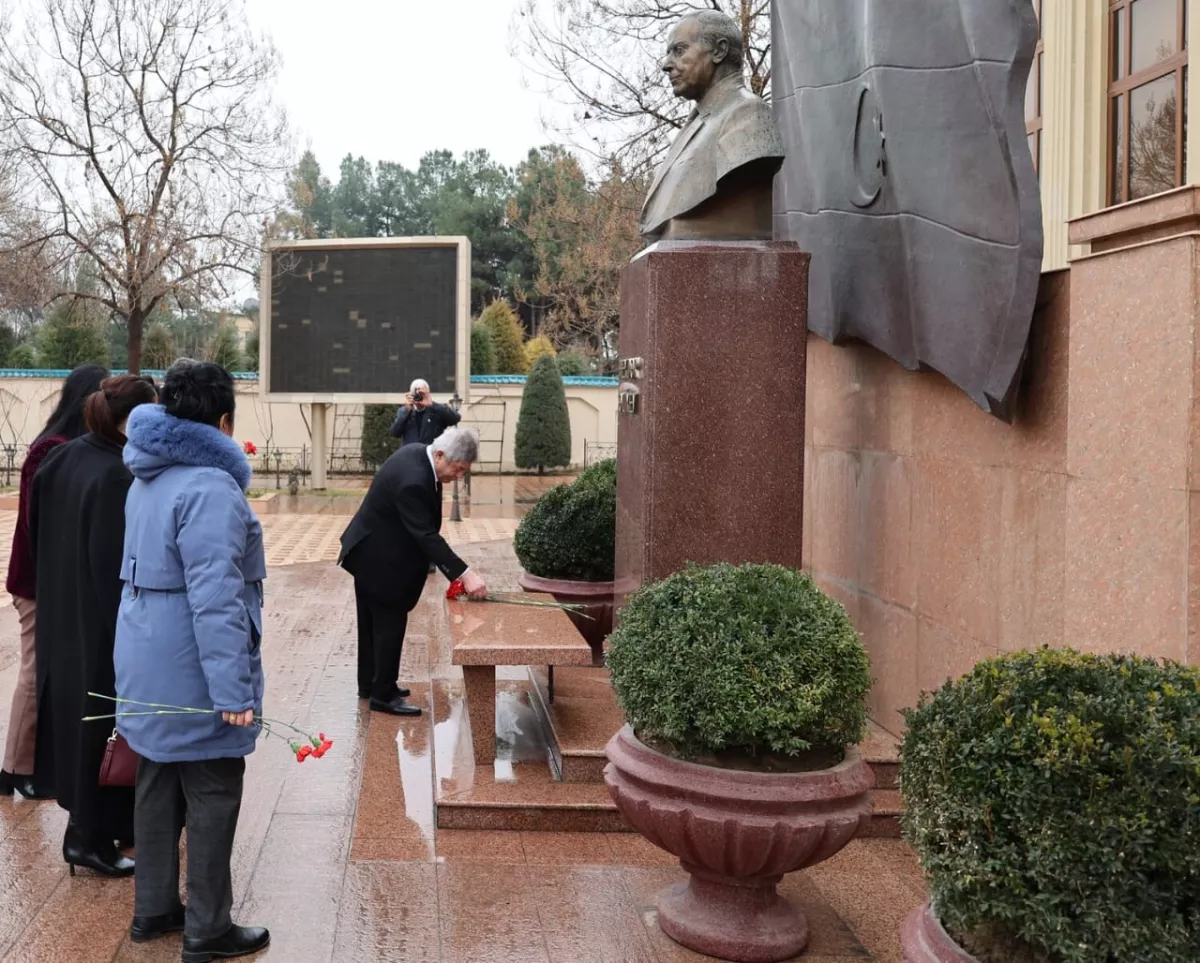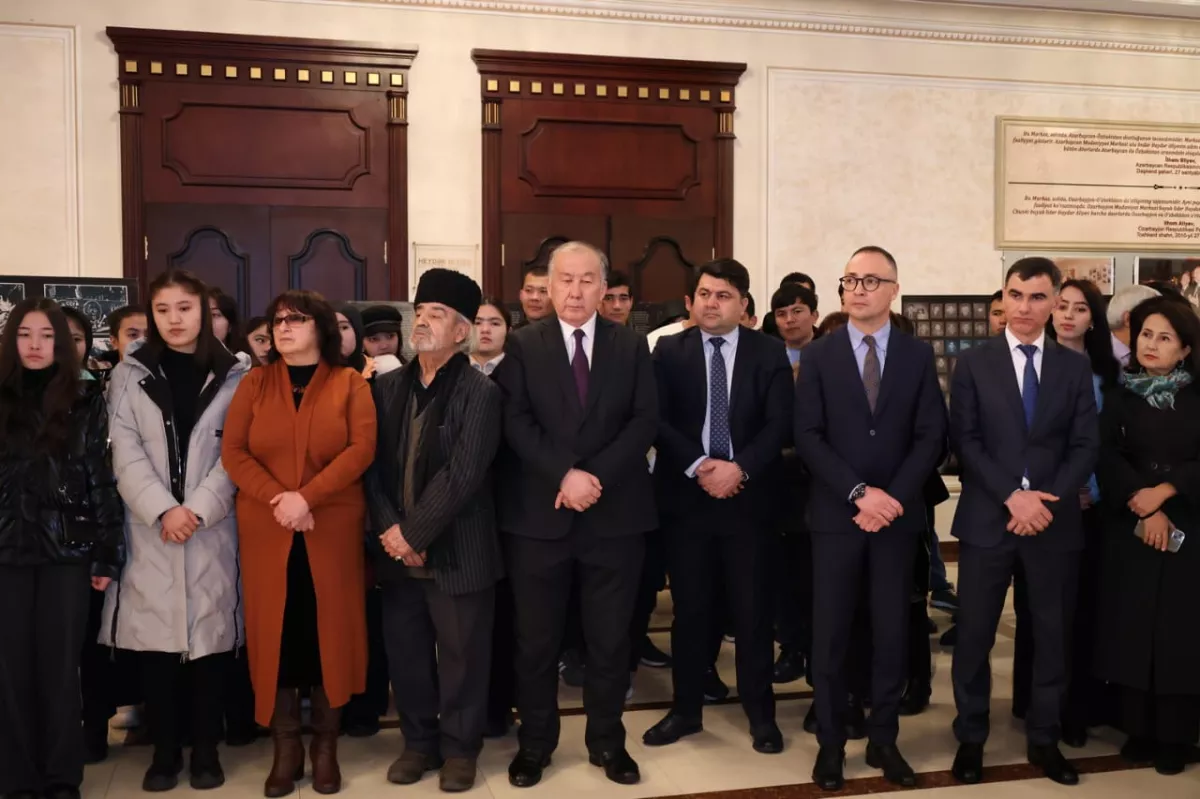Georgia, Uzbekistan host events commemorating Azerbaijan’s January 20 martyrs PHOTO
In Tbilisi, the "House of Azerbaijan," with support from the Azerbaijan Diaspora Support Fund, organized a photo exhibition and a commemorative event titled "The Path of National Resistance and Freedom" to honor the tragedies of January 20 and April 9.
The event was attended by Javid Maharramov, a representative of the Azerbaijani Embassy in Georgia; Ugur Taglan, a representative of the Turkish Embassy; Sheikh of the Georgian Muslim Administration, Haji Faig Nabiev; leaders and members of the Marneuli municipality; Zeynep Bayrak, General Director of TIKA's Georgia office; Faruk Tekşen, General Director of Turkish MAARİF schools in Georgia; Murad Kördemir, head of the Marneuli branch; as well as public representatives, religious figures, scholars, and youth, Caliber.Az reports via local media.
Guests viewed a photo exhibition dedicated to the January 20 and April 9 tragedies before observing a moment of silence in memory of those who lost their lives in both events, as well as those who sacrificed themselves for the territorial integrity and sovereignty of Georgia and Azerbaijan.
In his address, Mahabbat Imanov, Director of the "House of Azerbaijan," explained that the Soviet Union's leadership deployed troops in Baku and Tbilisi to suppress the aspirations of the Azerbaijani and Georgian peoples for freedom and independence. The tragedies of January 20 and April 9 resulted in mass killings of innocent people, symbolizing a proud yet painful chapter in the history of both nations.
Imanov noted that over 170 people lost their lives in the January 20 tragedy, including six Azerbaijanis from Georgia, while the April 9 tragedy claimed the lives of 21 Georgian citizens. He emphasized that the blood of the martyrs was not shed in vain, as Azerbaijan's lands have since been liberated from occupation.
Meanwhile, the Azerbaijani Embassy in Uzbekistan, in collaboration with the Heydar Aliyev Azerbaijan Cultural Center, held a commemorative ceremony marking the 35th anniversary of the January 20 tragedy.
The event, attended by embassy and cultural center staff, figures from science, culture, and the arts, members of the Azerbaijani diaspora, and journalists, began with the laying of flowers at the monument of Heydar Aliyev and in the Martyrs' Garden. Participants also explored book exhibitions and photographic displays dedicated to the January 20 tragedy, the Karabakh conflict, and the liberation of Azerbaijani lands.
After a moment of silence, Azerbaijani Ambassador to Uzbekistan Huseyn Guliyev highlighted the events of "Black January" as a turning point in the disintegration of the Soviet Union and a symbol of Azerbaijan's struggle for independence and territorial integrity. He shared that Soviet troops killed 147 civilians, injured 744, and left many disabled between January 19 and 20, 1990.
The ambassador emphasized that Heydar Aliyev’s return to power at the demand of the people led to a political assessment of the tragedy, which is now recognized as a key moment in Azerbaijan’s modern history, honored by Azerbaijanis worldwide.
Husan Ermatov, a member of the Senate of Uzbekistan's Oliy Majlis, described January 20 as a heroic chapter in Azerbaijan’s history. Other speakers, including Erkin Nuriddinov, Executive Director of the "Uzbekistan-Azerbaijan" Friendship Society; Jamila Shermukhammadova, a member of the Tashkent City Council; and scholar Babakhan Sharif, condemned the Soviet army’s actions in Baku as violations of international law.
The event concluded with Azerbaijani language students reciting poems about the January 20 tragedy, leaving attendees with a poignant reminder of the sacrifices made for freedom and independence.
By Khagan Isayev




